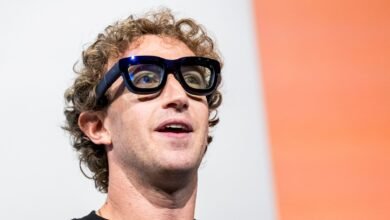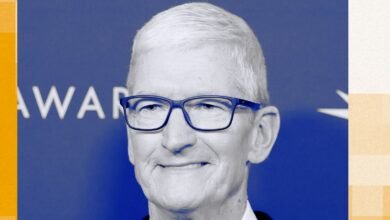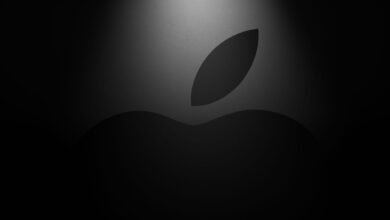Tech Titans Declare Smartphones Dead, But Apple’s Tim Cook Disagrees

▼ Summary
– Tech leaders like Elon Musk, Mark Zuckerberg, Sam Altman, and Bill Gates envision a future where smartphones are replaced by advanced technologies like brain implants, digital tattoos, and AR glasses.
– Elon Musk’s Neuralink is developing brain-computer interfaces that allow users to control devices with their thoughts, eliminating the need for physical interaction.
– Bill Gates supports electronic tattoos by Chaotic Moon, which use nanosensors to turn the body into a digital platform for health tracking and communication.
– Mark Zuckerberg predicts AR glasses will become the primary computing device by 2030, overlaying digital content directly into users’ vision instead of relying on screens.
– Apple’s Tim Cook maintains a focus on refining smartphones, like the iPhone 16, rather than replacing them, emphasizing incremental innovation over radical change.
The future of personal technology is at a crossroads, with industry leaders divided over whether smartphones will remain the dominant device or fade into obsolescence. While some tech visionaries champion radical alternatives, others argue that the familiar handheld screen still has staying power.
Elon Musk, Mark Zuckerberg, and Bill Gates are betting on technologies that could make smartphones obsolete. Musk’s Neuralink is pioneering brain-computer interfaces, allowing users to control devices with their thoughts. Two human trials have already begun, signaling a future where tapping screens could become unnecessary. Meanwhile, Gates supports Chaotic Moon’s electronic tattoos—wearable nanosensors that turn the skin into a digital interface for health monitoring and communication.
Zuckerberg envisions augmented reality glasses as the next computing standard. Meta’s CEO predicts that by 2030, transparent AR displays will replace smartphones, overlaying digital information directly into a user’s field of vision. This aligns with his broader push into the metaverse, where interactions transcend physical screens.
Apple’s Tim Cook, however, remains committed to refining the smartphone experience. The recent iPhone 16 integrates AI enhancements while preserving the device’s familiar design. Cook’s strategy prioritizes steady improvements over reinvention, emphasizing that smartphones still serve as indispensable tools. Unlike rivals pushing for disruptive change, Apple focuses on evolving its ecosystem without abandoning the core device that billions rely on daily.
This debate reflects deeper philosophical differences about human-tech interaction. Some leaders advocate embedding technology into our bodies or surroundings, while others believe in optimizing existing platforms. Whether smartphones endure or give way to neural implants and digital tattoos, one thing is certain: the next era of personal computing will redefine how we connect with the digital world.
(Source: Daily Galaxy)





